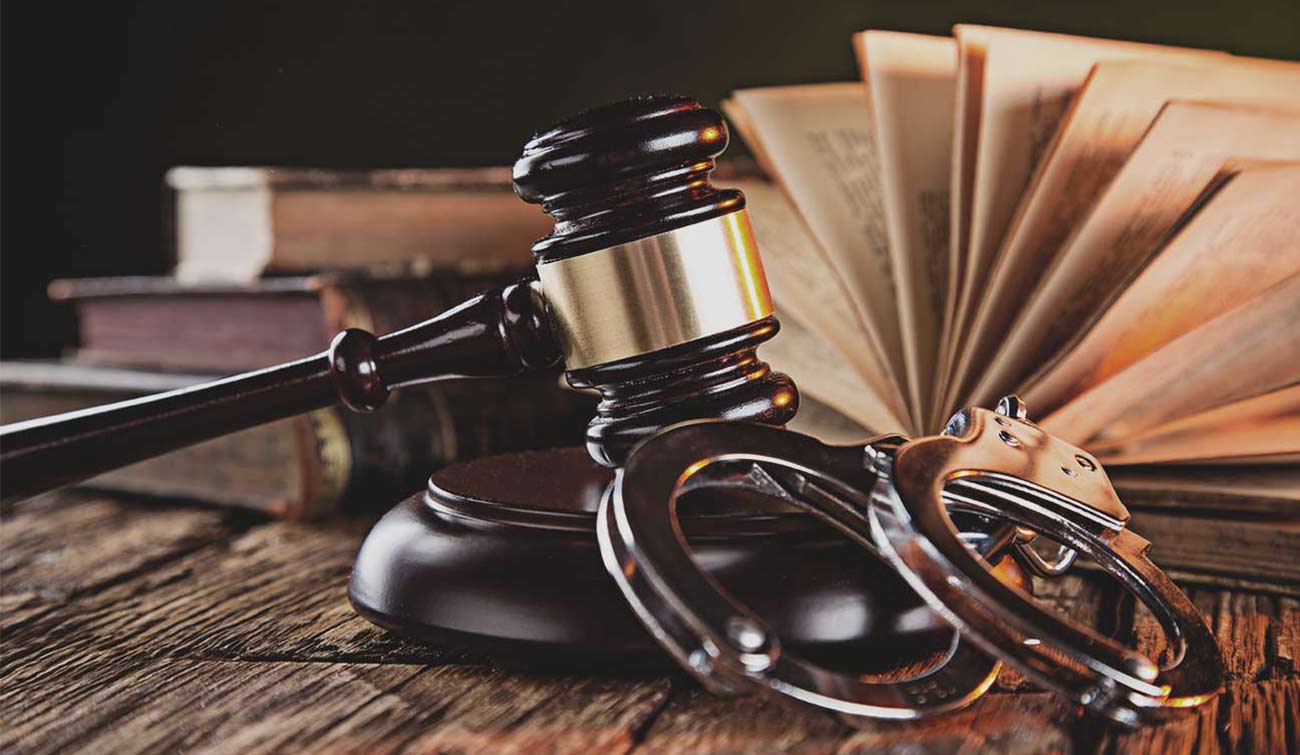What are the systems in place against crime in India? : Unveiling the Power of Criminal Law for Justice
Dear readers, let’s check criminal law in detail, where we will delve into the intricacies of the legal system, uncovering the power of justice and its impact on society.
1. Understanding Criminal Law: A Foundation for Justice
Criminal law is a branch of law that deals with offenses committed against society as a whole. It sets out the rules and regulations that define criminal conduct, establishes penalties for those who violate these laws, and ensures that justice is served. Understanding criminal law is crucial not only for legal professionals but also for everyday citizens, as it empowers us to navigate the legal system of the country and contribute to a just society.
One of the primary purposes of criminal law is to maintain social order and protect the well-being of individuals within a community. By clearly defining what constitutes criminal behavior, criminal law establishes boundaries that help deter potential offenders and safeguard the rights and safety of individuals. It also provides a framework for holding individuals accountable for their actions and imposing appropriate punishments when necessary.
Criminal law plays a vital role in upholding justice. It ensures that individuals accused of crimes are afforded due process rights, such as the presumption of innocence, the right to legal representation, and a fair trial.
2. The Role of Key Players: Judges, Prosecutors, and Defense Attorneys
In the criminal justice system, several key players play crucial roles in ensuring a fair and just legal process. These include judges, prosecutors, and defense attorneys. Let’s take a closer look at the roles they play:
1. Judges: Judges are responsible for overseeing the legal proceedings and ensuring that they are conducted in accordance with the law. They act as impartial decision-makers, interpreting and applying the law to the case at hand. Judges make important decisions such as setting bail, ruling on the admissibility of evidence, and instructing the jury. Their primary goal is to ensure a fair trial and uphold the principles of justice.
2. Prosecutors: Prosecutors, also known as district attorneys or crown prosecutors, represent the government or the state in criminal cases. Their role is to present the evidence against the accused and argue for their guilt. Prosecutors gather evidence, interview witnesses, and build a case against the defendant. They have the responsibility to seek justice and protect the interests of the public by pursuing criminal charges and advocating for appropriate penalties.
3. Defense Attorneys: Defense attorneys, also known as criminal defense lawyers, represent the accused individuals. Their primary role is to protect the rights of their clients and ensure a fair trial. Defense attorneys investigate the case, challenge the evidence presented by the prosecution, and advocate for their client’s innocence or for a fair and just outcome. They provide legal advice, build a defense strategy, and may negotiate plea bargains on behalf of their clients. Defense attorneys play a crucial role in safeguarding the constitutional rights of the accused.
These key players work together within the legal system to ensure that justice is served. While judges maintain impartiality and oversee the proceedings, prosecutors and defense attorneys advocate for their respective sides, striving for a fair and balanced outcome. Their roles are essential in upholding the principles of justice and protecting the rights of all individuals involved in the criminal justice system.
3. The Presumption of Innocence: A Cornerstone of Justice
In the realm of criminal law, the presumption of innocence stands as a fundamental principle that upholds the rights of individuals accused of crimes. It serves as a cornerstone of justice, ensuring fairness and protecting the rights of the accused.
The presumption of innocence dictates that every person is considered innocent until proven guilty beyond a reasonable doubt. This means that, at the outset of a criminal trial, the accused is presumed innocent and should not be treated as guilty until the prosecution presents sufficient evidence to establish their guilt.
This principle is crucial in safeguarding the rights and dignity of individuals, preventing wrongful convictions, and maintaining the integrity of the justice system. It places the burden of proof on the prosecution, requiring them to present compelling evidence that convinces the judge or jury of the accused’s guilt.
4. Investigating Crimes and Gathering Evidence
When it comes to solving crimes, the process of investigating and gathering evidence plays a crucial role in uncovering the truth. This intricate and meticulous process involves various techniques and methods employed by law enforcement agencies and investigators.
From crime scene analysis to witness interviews, every step is aimed at collecting and preserving evidence that can withstand legal scrutiny. Forensic experts utilize advanced technologies to examine physical evidence, such as DNA, fingerprints, and ballistics, providing valuable insights into crime.
Moreover, digital forensics has become increasingly important in the digital age, as investigators analyze electronic devices and online activities to uncover digital evidence.
By understanding the intricacies of investigating crimes and gathering evidence, we can ensure a fair and just legal system that upholds the truth and protects the innocent.
5. The Trial Process: From Arrest to Verdict
The trial process is a crucial part of the legal system, ensuring fairness and justice for all parties involved. It begins with the arrest of a suspect, who is then informed of their rights and charges against them. Following this, the suspect is brought before a judge for an initial appearance, where bail may be set. If the case proceeds, the next step is the arraignment, during which the suspect enters a plea. Subsequently, the trial takes place, where evidence is presented, witnesses testify, and arguments are made by both the prosecution and defense. Finally, a verdict is reached by the judge or jury, determining the guilt or innocence of the accused. The trial process is designed to uphold the principles of due process and ensure a fair and impartial resolution to criminal cases.
6. Landmark Cases: Shaping the Course of Criminal Law
Landmark cases have played a significant role in shaping the course of criminal law, setting important legal precedents, and influencing future decisions. One such case is Miranda v. Arizona, which established the requirement for law enforcement to inform suspects of their rights during custodial interrogations, known as the Miranda warning. This decision safeguarded the Fifth Amendment rights against self-incrimination. Another notable case is Gideon v. Wainwright, which established the right to legal counsel for defendants who cannot afford an attorney, ensuring fair representation for all. Additionally, the case of Roe v. Wade had a profound impact on criminal law by legalizing abortion, sparking debates on reproductive rights. These landmark cases demonstrate the power of the judiciary in shaping criminal law and protecting individual rights.
7. Balancing Justice and Rehabilitation: The Role of Punishment
Balancing justice and rehabilitation is a complex task when considering the role of punishment in the criminal justice system. Punishment serves multiple purposes, including deterrence, retribution, and incapacitation. It aims to hold individuals accountable for their actions and protect society from potential harm. However, rehabilitation also plays a crucial role in addressing the underlying causes of criminal behavior and promoting the reintegration of offenders into society.
While punishment can provide a sense of justice and deterrence, solely focusing on punitive measures may hinder the potential for rehabilitation. Research suggests that a more balanced approach, combining punishment with rehabilitative efforts, can lead to better outcomes. This includes providing access to education, vocational training, mental health services, and substance abuse treatment to address the root causes of criminal behavior.
Ultimately, the goal should be to strike a balance between punishment and rehabilitation, recognizing that individuals can change and reintegrate into society as law-abiding citizens. By offering opportunities for personal growth and addressing the factors that contribute to criminal behavior, we can work towards a justice system that promotes both accountability and the potential for positive transformation.
8. Emerging Trends: Technology and Criminal Law
Emerging trends in technology have had a profound impact on the field of criminal law, presenting both opportunities and challenges. One significant trend is the use of digital evidence, such as social media posts, emails, and surveillance footage, which has become increasingly prevalent in investigations and trials. This has necessitated the development of new legal frameworks to address issues of privacy, data protection, and the admissibility of digital evidence.
Another emerging trend is the use of artificial intelligence (AI) in criminal law. AI algorithms can analyze vast amounts of data to identify patterns and predict criminal behavior, aiding law enforcement agencies in crime prevention and detection. However, concerns have been raised regarding the potential biases and ethical implications of relying on AI in decision-making processes.
Furthermore, advancements in technology have given rise to cybercrimes, such as hacking, identity theft, and online fraud. This has led to the development of specialized branches of criminal law, focusing on cybercrime investigation and prosecution.
Lastly, the advent of blockchain technology has introduced new challenges in areas such as cryptocurrency-related crimes and the need for digital asset tracing.
As technology continues to evolve, it is crucial for the legal system to adapt and address these emerging trends in order to effectively combat crime while safeguarding individual rights and privacy.
Conclusion:
Justice is not just a concept; it is a force that strives to maintain order, protect the innocent, and hold the guilty accountable.
In case you are looking for the best Criminal Defense Lawyers and Law Firms in Mumbai, look no further than Elixir Legal Services. With its exceptional expertise and dedication to client satisfaction, Elixir Legal Services has established itself as one of the best law firms in the city. Their team of experienced lawyers specializes in criminal law and is committed to providing top-notch legal services. Whether you are facing criminal charges or seeking legal advice, Elixir Legal Services will ensure that you receive the best possible representation and guidance throughout your legal journey. Trust their expertise and experience to navigate the complexities of criminal law and protect your rights.


